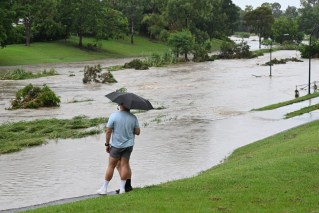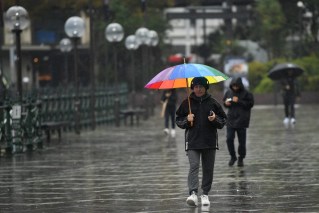New report says it’s getting drier, wetter and more humid – all at once
Australia’s volatile summer of fatal floods, scorching heat and fires and oppressive humidity is a sign the planet is warming fast, a report says.

The tourism recovery is well underway (Photo TEQ)
The 2023-24 summer has included the nation’s driest three months on record from August to October, followed by a month of record rainfall in the eastern states.
Weather records have been broken in almost every state and territory as communities were slammed with wild swings between cyclones, flooding rains, heatwaves and extreme fire conditions.
Millions of Australians have also sweltered through weeks of stifling humidity, with east coast cities more humid than the long-term average for January and Sydney registering its highest dew point on record.
A Climate Council report released on Thursday says the Australian summer has delivered clear signs the planet is overheating, including rising ocean temperatures along the east coast.
Sea surface temperatures have been more than 3C above average in some areas and strong easterly winds have brought unbearable humidity and weather conditions conducive to storms.
The unusually early arrival of Cyclone Jasper in Queensland and its slow dawdle across land resulted in enormous rainfall dumps – another sign of what’s expected of intense storms on an overheating planet, along with high-intensity rainfall and above-average temperatures.
The council’s director of research Simon Bradshaw said the chaotic summer weather had left many Australians suffering climate whiplash as they were hurtled from one extreme to another with little time to recover – and it was not over yet.
“From intense heat and fierce fire conditions to flooding rains and back again – the stifling humidity, intense storms, soaring temperatures and other extremes of recent months are all key signs of a fast-warming planet,” he said.
The council said the weather was not foreseen, with a predicted El Nino and an early start to the fire season, which included a deadly Queensland blaze in October that destroyed more homes than the infamous 2019-20 Black Summer fires, indicating the nation was in for a hot and dry summer.
But it did not last, with extreme downpours, intense storms and flooding claiming lives and homes in communities up and down the east coast a month later, as some weather stations registered their highest November rainfall on record.
Temperatures have also been well above average in many parts, with homes around Perth threatened three times by large fires as the state baked through its warmest September in more than a century and a series of heatwaves broke records.
Towns in the Pilbara and outback Queensland also recorded new January temperature records, with maximums just shy of 50C.
Biological scientist Lesley Hughes said Australia could no longer rely on historical weather records and patterns to make forecasts.
“Climate change is causing erratic swings from sweltering heat to devastating downpours, and it is increasingly hard to predict what each season will bring,” she said.
“What we can rely on is the science … that has been warning us for decades that days like these would come.”
Professor Hughes said the world needed to immediately end the use of fossil fuels, such as coal, oil and gas, to slow global warming.
Dr Bradshaw called for Australia’s environmental laws to be reformed “so that we stop adding fuel to the fire by approving new coal and gas projects”.
He said the nation should implement proposed fuel efficiency standards as soon as possible and work harder to prepare communities for the coming impact of further climate change.











